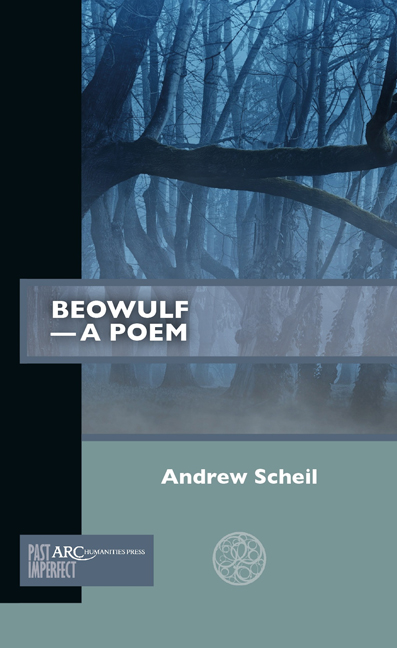Summary
By way of conclusion, let's look at one final scene of the poem, a moment that has always seemed central to me: Beowulf's retrieval of the giant-sword. It is the one moment in the story when a human ventures into the non-human world and comes back, bearing something rich and strange. The sword is “an ancient heirloom / from the days of the giants” (1558–59), larger than any mortal man could wield, except Beowulf. The sword enables him to kill Grendel's mother and behead Grendel. The sword-blade, however, melts away, and Beowulf carries back from the lair only Grendel's head and “the inlaid hilt / embossed with jewels” (1614–15). Beowulf brings both to Hrothgar and hands over the hilt, the “rare smithwork” (1679), to the king:
Then the gold hilt was handed over to the old lord, a relic from long ago [enta ærgeweorc] for the venerable ruler. (1677–79)
Hrothgar looks at the hilt, “that relic of old times” (ealde lafe), and the hilt delivers a message:
It was engraved all over
and showed how war first came into the world
and the flood destroyed the tribe of giants.
They suffered a terrible severance from the Lord;
the Almighty made the waters rise,
drowned them in the deluge for retribution.
In pure gold inlay on the sword-guards
there were rune-markings correctly incised,
stating and recording for whom the sword
had been first made and ornamented
with its scrollworked hilt. (1688–98)
We do not quite know if “engraved” (OE writen) means the hilt has writing on it or a pictorial representation of God's destruction of the giants in the Genesis Flood (probably the latter). Runes on the hilt mark out the name of the sword's maker or owner. We also do not know if Hrothgar (or any other character) can “read” the hilt, if writing is indeed on it. But the hilt itself seems to provoke Hrothgar's long central speech (1698–1784), in which he muses upon many things including pride, death and mutability: the “hard reversal (edwenden) / from bliss to grief” (1774–75). He marvels how God grants happiness to a man for so long that he cannot imagine any end to it, cannot think of life ever being any other way (1724–39).
- Type
- Chapter
- Information
- Beowulf , pp. 97 - 100Publisher: Amsterdam University PressPrint publication year: 2022

